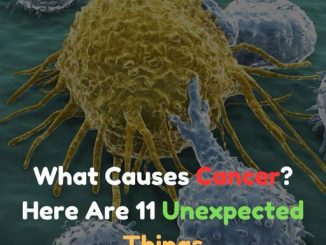Romy, a 22-year-old woman from the Netherlands, was once so burdened by mental health struggles that she fought for years for the right to die. Her battle with severe depression, anorexia, and the effects of childhood trauma left her feeling that life was no longer worth living. However, moments before her planned euthanasia procedure, a simple question changed everything. Her story is a powerful testament to the resilience of the human spirit and the importance of support in even the darkest times.
Romy’s Journey: A Fight for Euthanasia as an Escape from Pain

Romy’s life had been filled with profound hardship. By the time she reached adulthood, she had faced more struggles than many encounter in a lifetime. Diagnosed with clinical depression and suffering from an eating disorder that stemmed from years of trauma and abuse, Romy felt trapped in her own existence. The weight of her pain led her to advocate for euthanasia, an option legally available in the Netherlands under strict criteria.
At 18, she began campaigning to end her life legally. She pleaded her case before doctors, government officials, and even her own family, fighting to prove that her suffering was too immense to bear. Finally, after four years of determination, her request was granted, and in June 2023, she found herself in a hospital bed in Leiden, ready to say goodbye.
The Preparations for Death: Facing the Reality of Her Decision
On the day of her planned euthanasia, Romy saw the physical manifestations of her choice for the first time. She watched as a black hearse and coffin arrived, prepared to take her body away. To mark the moment, she handed out T-shirts emblazoned with the phrase “life sucks,” symbolizing the despair that had brought her to this point. The reality of her situation was heavy, yet she remained resolute.
As she lay in the hospital bed, her doctor went over the steps of the euthanasia procedure in detail, a legal requirement in the Netherlands. Holding the lethal injection syringe, the doctor explained, “The first injection numbs your vein… The second injection stops your breathing. After that, you will die quickly.” Romy listened, taking in each step with a pounding heart, fully aware that this was supposed to be her final day.
The Question That Changed Everything
In the Netherlands, before proceeding with euthanasia, doctors must ask one final question to confirm the patient’s consent. As Romy lay there, prepared to end her life, her doctor asked, “Are you sure?”
That one question, designed to ensure absolute certainty, triggered a surge of emotion in Romy. Tears filled her eyes as the weight of her decision washed over her, and in that vulnerable moment, she found herself reconsidering everything. Overwhelmed by emotions she thought were long buried, she broke down and called off the procedure, making the decision to keep fighting for her life.
A Second Chance: Support and a Renewed Will to Live
Romy’s choice to withdraw from euthanasia was not an immediate end to her struggles. Though she initially re-applied for euthanasia, something inside her had shifted. Surrounded by the support of her loved ones, along with compassionate mental health professionals, Romy began to explore other paths. Her family, friends, and psychiatrist encouraged her to continue trauma therapy, helping her find hope she hadn’t seen before.
Over time, Romy’s perspective on life began to change. The journey toward healing was not easy, but with support, she started to feel a renewed sense of purpose. Today, Romy no longer wishes to end her life. Instead, she sees life as valuable, even with its challenges. Reflecting on her experience, she shared, “I don’t regret the journey. Because I’ve been so close to death, I see life as something valuable. It won’t always go well, but I now know there is light at the end of the tunnel.”

Discovering Hope in Everyday Moments
Romy’s decision to continue with therapy and pursue healing led her to rebuild her life in ways she hadn’t thought possible. Today, she is studying for a diploma in adult education and lives in communal assisted living, finding meaning in simple routines that once seemed impossible to appreciate. In an interview, she even shared that paying rent, an activity she once dreaded, now brings her a sense of purpose and normalcy.
While her journey remains challenging, these everyday accomplishments serve as a reminder of how far she has come. Her ability to find joy in the mundane reflects a renewed hope and a reimagined life that she hadn’t thought possible before.
The Role of Euthanasia Laws in Mental Health Decisions
Romy’s story also opens a conversation about euthanasia and its application for those experiencing severe mental health issues. The Netherlands is one of the few countries where euthanasia is legal under specific circumstances, allowing people with severe and unrelenting psychological distress to make end-of-life decisions. However, Romy’s experience underscores the importance of ensuring these choices are made with the utmost caution, care, and empathy.

Her doctor’s final question, intended as a last safeguard, became the turning point that saved her life. This aspect of the law highlights the need for compassion in every stage of the euthanasia process, especially for individuals struggling with mental health. Romy’s experience suggests that even in moments of deep despair, having someone ask, “Are you sure?” can create an opportunity for reflection, perhaps saving lives in ways we might not initially expect.
The Power of Human Connection in Overcoming Darkness
What ultimately saved Romy wasn’t just a question—it was the unwavering support of people who refused to give up on her. The compassion from her family, friends, and therapist helped her find strength in a time when she felt she had none. This network of support allowed her to see beyond her pain and recognize the possibility of healing.
Romy’s story reminds us that while mental health struggles can feel insurmountable, connection, empathy, and understanding can provide a bridge back to hope. Her journey underscores the need for mental health support that goes beyond treatment plans, offering a holistic, human-centered approach that values the person behind the pain.
Conclusion: A New Appreciation for Life
Today, Romy is a survivor—not just of the struggles that led her to consider euthanasia but of the unimaginable journey she undertook to rediscover hope. Her story is a powerful reminder of the resilience we can find within ourselves, even when we least expect it. Her journey demonstrates that moments of darkness can transform into a newfound appreciation for life’s simple joys, like studying, socializing, and even paying rent.
Romy’s experience is more than a story of survival; it’s a testament to the impact of love, support, and compassion. Her life today reflects the strength of the human spirit and the profound difference that a single question and a supportive community can make for someone who feels on the edge. For Romy, the decision to live came at the very last moment, but it has opened a future full of possibilities she once thought she’d never see.


